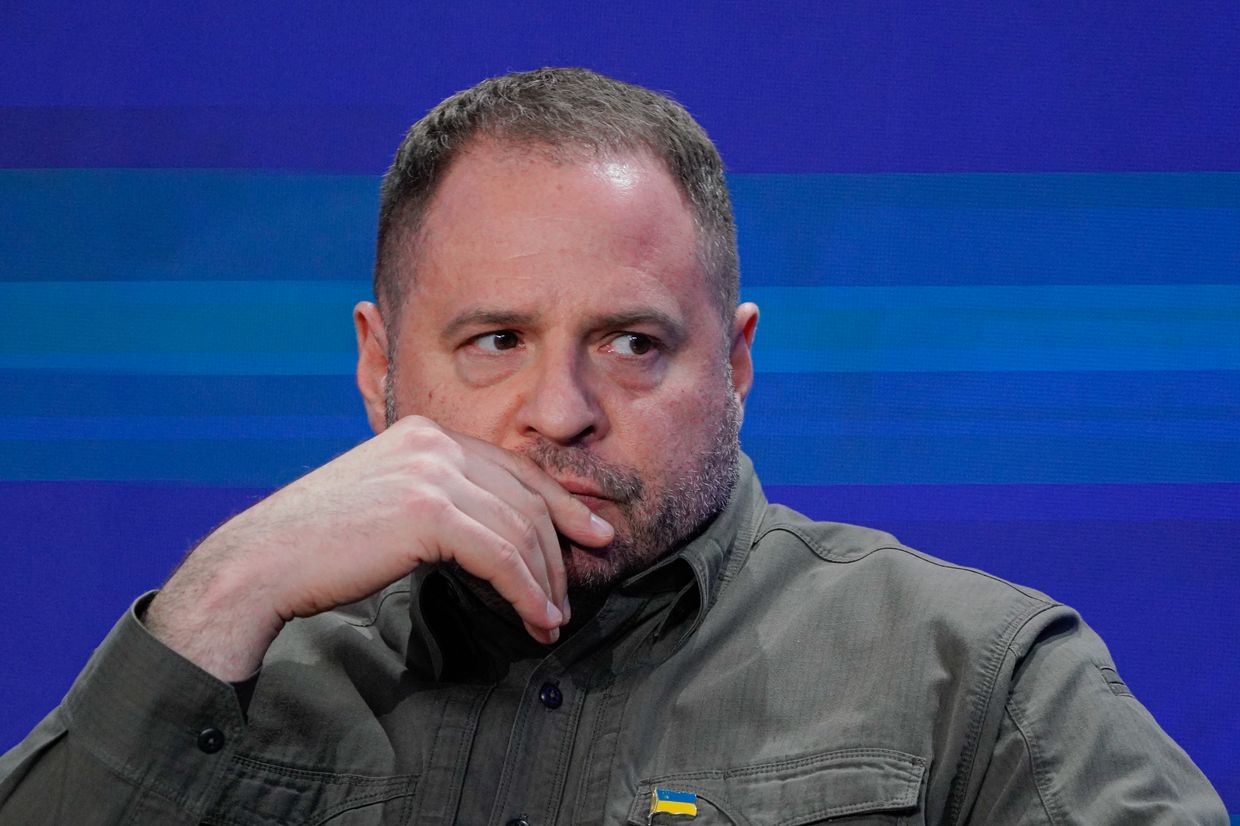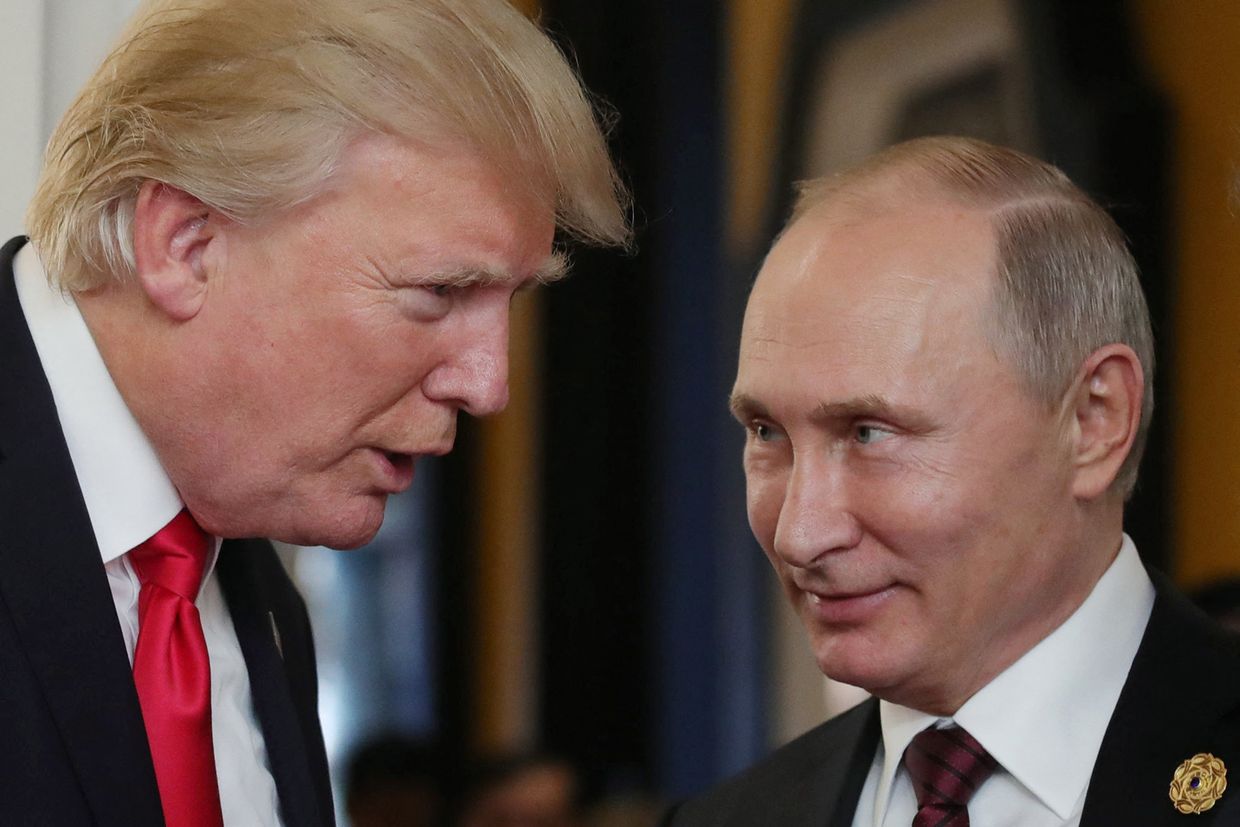"(T)he presence at the Victory Parade of a country that bombs cities, hospitals, and daycares, and which has caused the deaths and injuries of over a million people over three years, is a shame," Polish Prime Minister Donald Tusk said.
"According to the participants of the performances, their goal is to remind the civilized world of the barbaric actions of Moscow, which for many years and decades has systematically violated international law," a source in Ukraine’s military intelligence agency (HUR) told the Kyiv Independent.
"I have great hope that an agreement for a ceasefire in Ukraine will be reached this weekend," German Chancellor Friedrich Merz said on May 9, shortly before traveling to Kyiv alongside the leaders of France, Poland, and the U.K.
U.K. Prime Minister Keir Starmer, French President Emmanuel Macron, German Chancellor Friedrich Merz, and Polish Prime Minister Donald Tusk will arrive in Kyiv early on May 10.
The United States embassy in Kyiv on May 9 issued a warning that Russia could launch "a potentially significant" attack in the coming days, despite Putin's self-declared Victory Day "truce."
The sanctioned oil tankers have transported over $24 billion in cargo since 2024, according to Downing Street. The U.K. has now sanctioned more shadow fleet vessels than any other country.
The sanctions list includes 58 individuals and 74 companies, with 67 Russian enterprises related to military technology.
Washington and its partners are considering additional sanctions if the parties do not observe a ceasefire, with political and technical negotiations between Europe and the U.S. intensifying since last week, Reuters' source said.
Despite the Kremlin's announcement of a May 8–11 truce, heavy fighting continued in multiple regions throughout the front line.
Putin has done in Russia everything that Luiz Inacio Lula da Silva had been against in Brazil.
US opposed to frozen conflict in Ukraine, Zelensky's chief of staff says

The U.S. opposes settling Russia’s full-scale war against Ukraine as a frozen conflict, Presidential Office Head Andriy Yermak said on March 13.
"We have been very clear that we will never agree to a frozen conflict. We are very much against it, and our positions align with our American partners," Yermak said.
Speaking on national television, Yermak said that the Ukraine-U.S. meeting in Saudi Arabia on March 11 – which he had led – and a U.S.-proposed 30-day ceasefire are just the beginning, with more work ahead.
Kyiv agreed to a temporary truce, provided that Russia did as well. Days after, on March 13, Russian President Vladimir Putin said he is ready to agree to the proposal but demands guarantees that Kyiv will not mobilize or train troops, nor receive military aid during it.
Washington opposed an agreement that would be similar to the 1994 Budapest Memorandum or the 2014-2015 Minsk agreements, which failed to prevent or stop Russia's aggression, Yermak said.
According to Yermak, the Ukrainian and American delegations also agreed that European representatives would participate in the peace process.
Keith Kellogg, U.S. President Donald Trump's special envoy, said earlier that Europe will not be directly involved in negotiations to end Russia's war in Ukraine, but its interests will be considered.

Most Popular

After 3 years of full-scale war in Ukraine, Europe announces plan to ban all Russian gas imports

Ukraine, Europe's ceasefire proposal includes US security guarantees, no recognition of Crimea, Reuters reports

Journalist Roshchyna's body missing organs after Russian captivity, investigation says

After Russia's deadly attack on Kyiv, Vance reposts denunciation of Zelensky

Ukrainian sea drone downs Russian fighter jet in 'world-first' strike, intelligence says
Editors' Picks

How medics of Ukraine’s 3rd Assault Brigade deal with horrors of drone warfare

As Russia trains abducted children for war, Ukraine fights uphill battle to bring them home

'I just hate the Russians' — Kyiv district recovers from drone strike as ceasefire remains elusive



